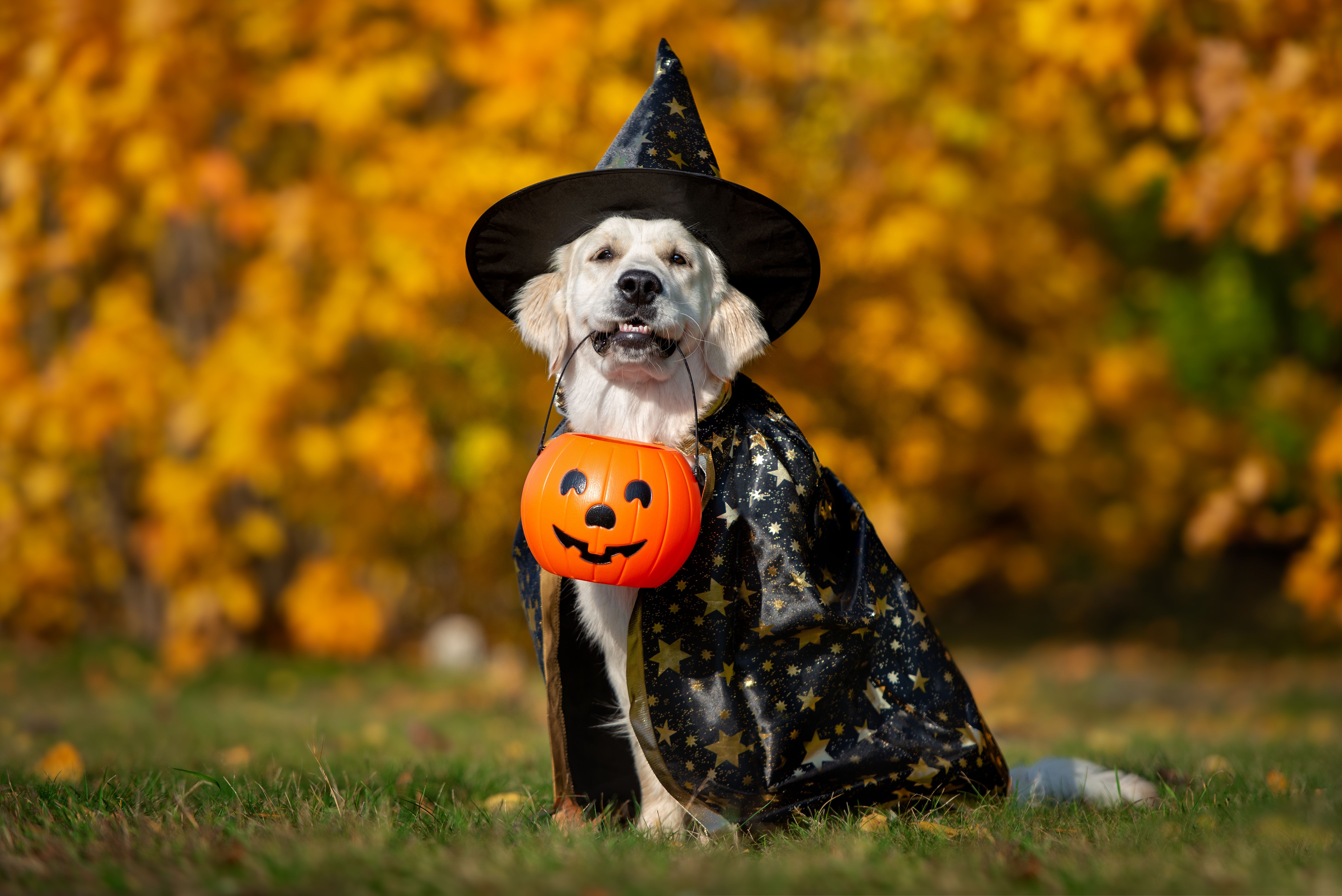AVMA unveils safety tips to keep pets safe for Halloween
From toxic treats to constricting costumes, the association is warning pet owners to mind the following precautions during Halloween festivities.
Trick-or-treaters are likely making their debut this Halloween after being scaled back a year due to the COVID-19 pandemic. Though the return of this holiday brings good news to those who celebrate, it may result in a few additional threats to pets. To safeguard the health of animals this spooky season, the American Veterinary Medical Association (AVMA) has released multiple tips to help educate pet owners, ranging from dangerous decorations to harmful treats.
Trick-or-treaters are likely making their debut this Halloween after being scaled back a year due to the COVID-19 pandemic. Though the return of this holiday brings good news to those who celebrate, it may result in a few additional threats to pets. To safeguard the health of animals this spooky season, the American Veterinary Medical Association (AVMA) has released multiple tips to help educate pet owners ranging from dangerous decorations to toxic treats.
Candy
Halloween typically entails a plethora amount of candy being kept at home—whether it’s from trick-or-treating or handing out the candy. Despite the begging eyes, your clients may receive from their pets, the AVMA recommends informing clients about the perilous effects candy containing chocolate or xylitol (a common sugar substitute used in sugar-free candy or gum) can have on pets. These ingredients can be toxic and even lethal to pets, so it’s best to advise clients to refrain from feeding these treats to their pets.
Costumes
Although they can make pets look utterly adorable, costumes can also cause complex problems if the owner is not careful. That’s why it’s important to have pet parents make sure their pets’ costume fits properly and does not obstruct vision, hearing, breathing, opening of the mouth, or movement. Additionally, the AVMA advises against using costumes that have pieces that can be easily chewed off or choked on. If the pet looks downright miserable or constricted in the costume, then don’t force it on them.
Decorations
Though Halloween decorations can set the scene for a spooky ambiance, pet owners should be made aware of décor that can inflict harm to their pets. According to the AVMA, this may include objects that pets can knock over or chew as these can cause an obstruction in their stomach that can be life-threatening or warrant surgery. Ensure clients keep anything with an open flame (ie, jack-o-lanterns), glow sticks, glowing jewelry, and additional decorations out of pets’ reach as these can cause burns or a fire in the home.
Trick-or-treating
The constant hustle and bustle from all the noises, strangers, trick-or-treaters, along with the persistent opening and closing of the door, not only stresses out pets but also gives them a chance to escape. To prepare for this, the AVMA urges pet parents to take caution each time they open and close the door by ensuring their pets are not in a position to escape and have proper identification (ie, collar tags and microchip). Owners should also be providing their pets with a quiet, secure hiding space indoors that is away from the commotion. Finally, pets should have the opportunity to observe (ie, through a window) or retreat from the activity if need be.
Reference
Halloween can be a scary time for pets; AVMA shares tips on keeping them safe. News release. The American Veterinary Medical. October 26, 2021. Accessed October 27, 2021. https://www.avma.org/news/press-releases/halloween-can-be-scary-avma-shares-tips-keeping-pets-safe
Newsletter
From exam room tips to practice management insights, get trusted veterinary news delivered straight to your inbox—subscribe to dvm360.
